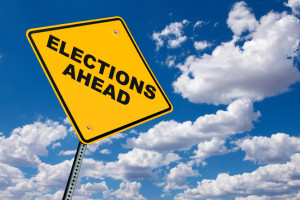 By Steve Brawner, © 2019 by Steve Brawner Communications, Inc.
By Steve Brawner, © 2019 by Steve Brawner Communications, Inc.
Elections are approaching, but they won’t be covered by the 24-hour national news stations. You won’t see 30-second ads on any Arkansas TV stations, either.
I’m talking about the annual school elections, which will be May 21. Early voting begins May 14.
When it comes to political glamor, school board elections rank somewhere around the county clerk’s race. The state’s nearly 1,500 board members don’t run under party labels and aren’t paid for their service. (Pay varies across the country. Many make nothing. In Mississippi, they get $67 per meeting or a flat $2,400 a year. In Los Angeles, they received a 174 percent raise in 2017 to $125,000.) In Arkansas, board members have no power individually and no power when not participating in a called meeting. If you complain to your board member about some issue at school, he or she is supposed to direct you to someone who gets paid to fix it.
But they do play important roles. Probably their most important is hiring and firing the superintendent. They work with school administrators to pass a budget and set policy (while being constrained by many state and federal dictates). School boards decide when it’s time to ask the community for a millage increase to pay for a new building. There is evidence that good boards are associated with improved student performance.
The office also is a stepping stone. U.S. Sen. John Boozman served on the Rogers School Board, while U.S. Rep. Bruce Westerman served at Fountain Lake. Fifteen current state legislators have been school board members.
I should tell you I publish a magazine, supported entirely by ads, in partnership with the Arkansas School Boards Association.
Until last year, elections were held each September, but the Legislature in 2017 voted to give school districts a choice of holding them in May with party primaries, or in November with the general election. In odd-numbered years such as this one, school board elections have the ballots to themselves those months.
Most school districts chose May. The earlier date lets new members get their feet wetter before deciding on the next year’s budget and voting on renewing the superintendent’s contract.
Legislators changed school board election dates in response to sometimes abysmally low voter turnout in September.
How low? I once interviewed a Fayetteville School Board member who had been re-elected 115-113 in a zone with 8,328 voters, a turnout of 2.74 percent.
There should have been interest. That election followed two school millage elections to pay for a new high school, the second of which voters passed, and occurred while schools were implementing the controversial Common Core standards. The candidates ran active campaigns, but people just didn’t bother to show up, which clearly disappointed the school board member despite his narrow victory.
We want informed voters, not just more voters, but we definitely want more than 2.74 percent turnout. Such low numbers potentially give too much leverage to a small group of people, such as a group of activists with an axe to grind who can get people to the polls.
As a result of the change, school boards elections last year occurred in May, when overall turnout was 18.76 percent, and November, when it was 50 percent.
With no other races on the ballot this year, we’ll probably have the same very low turnout we’ve always had, but we’ll see. Maybe people are more accustomed to voting in May and November. A competitive race in my hometown of Wynne has produced many yard signs.
The lack of a salary or party identification reduces what candidates spend on their campaigns, so voters can’t rely on 30-second spots.
Sometimes the information can be limited. There’s a three-candidate race in Benton where I live, but I don’t know any of them. None appear to have a website, though two have campaign Facebook pages.
So I guess I’ll do what I did in a previous school board election: Rely on an acquaintance who recently served on the board and who I trust will steer me in the right direction.
I guess that means he gets two votes. But it’s better than my not voting at all, right?